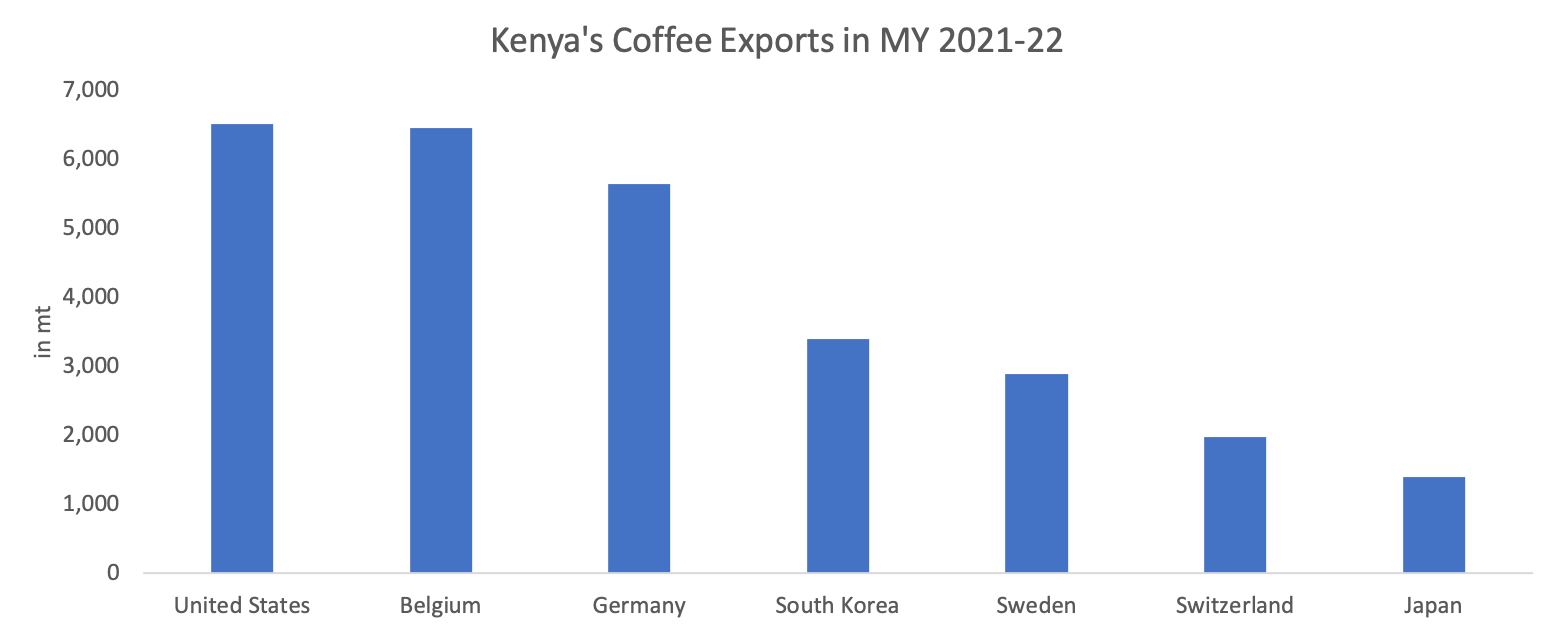Kenya’s Coffee Production to Fall in the Upcoming MY

As of 2021, Kenya was the fifth largest producer of coffee in Africa with an average production of 780,000 bags (60 kg) per year. The country stood behind Ethiopia (7.38 million bags), which is the largest coffee producer in Africa, followed by Uganda (5.62 million bags), Ivory Coast (1.78 million bags) and Tanzania (913,000 bags). Even though Kenya produces a limited amount of coffee each year, Kenyan coffee is well-liked among coffee lovers given its signature acidity and dry aftertaste. Some of the world’s most expensive and finest coffees come from Kenya, and as a single origin coffee, it wins much praise at the cupping table. Over 90% of coffee in Kenya is sold through the Nairobi Coffee Exchange (NCE), a spot market which holds strong control over the quality of coffee that is traded. The remaining 10% is sold through direct sales, between marketing agents on behalf of producers and exporters.
For marketing year (MY) 2022-23 (October 2022-September 2023), the USDA has forecasted that Kenya’s coffee production will record a YoY decline of 10% due to lower yields as rising fertiliser prices limit fertiliser usage. Coffee crops require an adequate amount of fertiliser to ensure optimum growth and high yields, but with rising prices, the farmers are not able to afford the input. Currently, fertiliser prices in Kenya stand at USD 53 per 50 kg bag, which is a 71% increase from the previous year. In addition to limited use of fertilisers, the yields in MY 2022-23 are expected to decline due to usual cyclical variations, given that Arabica coffee undergoes a three-year cycle, with yields increasing over two years and then falling in the third. The majority of Kenya's coffee trees peaked in the previous MY 2021-22 and it is expected that they will record a decline this year.

Source: Trade Data Monitor
Although Kenya’s coffee attracts relatively high prices compared to coffee from other countries that produce mild arabicas, Kenya's coffee accounts for less than 1% of world coffee exports. The country exports coffee to large markets like the United States, Belgium, Germany, and South Korea. Following a decline in coffee production, the USDA has projected that Kenya’s coffee exports will record a YoY decline of 11%. Kenya has a large potential for increasing its presence in the global coffee market, provided it can boost its production in an efficient manner. The high quality coffee can help the farmers increase their revenue from coffee exports and invest in expanding their production. While the outlook for coffee production in MY 2022–23 remains bleak, there is still hope for Kenya to recover and make its mark in the global coffee market in the upcoming years.





